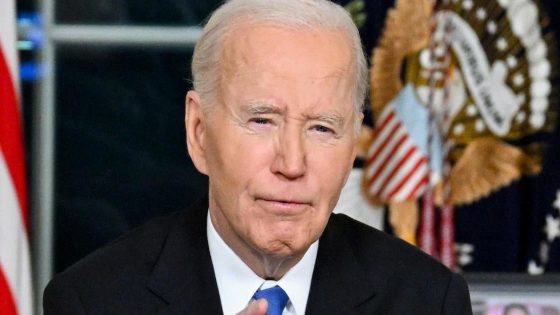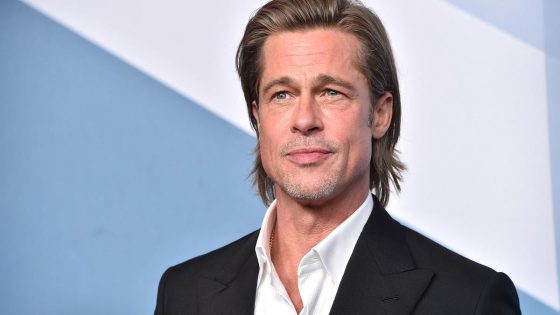In a landmark move on January 15, 2021, President Joe Biden made a significant announcement that has the potential to alter the lives of nearly 2,500 individuals convicted of nonviolent drug offenses. As he approached the end of his presidential term, Biden revealed a series of clemency actions aimed at commuting sentences that he believed were excessively harsh for offenses that often stemmed from outdated legal frameworks. This decision reflects Biden’s ongoing commitment to reforming criminal justice policies, particularly those related to drug sentencing.
- Biden commutes sentences of 2,500 nonviolent offenders.
- Record for most pardons and commutations.
- Aims to address sentencing disparities and injustices.
- Previous clemency included 1,500 sentences last month.
- Considers further pardons before Trump’s inauguration.
- Biden pardoned son Hunter for potential charges.
Speaking from the White House, Biden remarked, “Today’s clemency action provides relief for individuals who received lengthy sentences based on discredited distinctions between crack and powder cocaine, as well as outdated sentencing enhancements for drug crimes.” He emphasized that these actions are not merely symbolic but are crucial steps in addressing historical wrongs and fostering fairness within an often-criticized judicial system.
The timing of Biden’s announcement came just days before President-elect Donald Trump was to assume office, suggesting an urgent desire to harness his remaining time in the White House to enact changes he deemed necessary. The commutations granted him the record for the most individual pardons and commutations issued by a president, underscoring his intent to rectify past injustices that had disproportionately impacted marginalized communities.
As details emerged, it became clear that this clemency action followed a previous round of pardons in December 2020, where Biden had already commuted the sentences of approximately 1,500 individuals. Those affected had been placed on home confinement during the coronavirus pandemic, marking the largest single-day clemency act in modern American history. The scale of these decisions highlights Biden’s reflective approach, suggesting that he wishes to restore hope and provide a second chance to those who have been affected by stringent drug laws.
Despite the celebratory tone surrounding these announcements, Biden’s clemency actions haven’t been without scrutiny. Observers noted that while Biden’s administration aims for fairness, it also faces the complex repercussions of reversing policies that some critics believe were necessary for maintaining public safety. Yet, as Biden pointed out, the review hinges on recognizing that yesterday’s standards may no longer hold validity in today’s legal landscape.
While the precise identities of those receiving commutations were not disclosed immediately, the anticipation surrounding this clemency wave has sparked hope among families and advocates who have long pushed for such reforms. “This is what justice looks like,” said a local activist, echoing sentiments shared by many in the community. Families eagerly awaited news of their loved ones’ commutations, realizing that these actions could allow many to return home after enduring years behind bars for nonviolent offenses.
As Biden prepares to exit the Oval Office, the possibility of further clemency actions looms. He has expressed intentions to continue reviewing cases before Trump’s inauguration, hinting that there may be more individuals deserving of relief. The consideration of sweeping pardons and targeted clemency for allies caught in potential politically motivated prosecutions under the incoming administration presents a complex moral challenge that Biden will have to navigate carefully.
In an unanticipated twist, Biden also recent pardoned his son Hunter, addressing concerns about possible legal challenges stemming from Trump’s administration. Critics suggest this move reflects the personal cost of political decisions, and it highlights the intertwining of familial ties with the nuances of presidential power.
With historical precedents in mind, Biden’s commutation actions echo the pattern of last-minute clemency that has characterized several administrations, including Trump’s. As political tides shift and legal debates continue to unfold, the coming months promise to be critical not just for Biden’s legacy but for the countless individuals hoping for a chance at redemption. As these developments unfold, advocates for criminal justice reform remain vigilant, echoing a collective hope that these changes will not only reshape individual lives but also transform a system long criticized for its inequities.

































